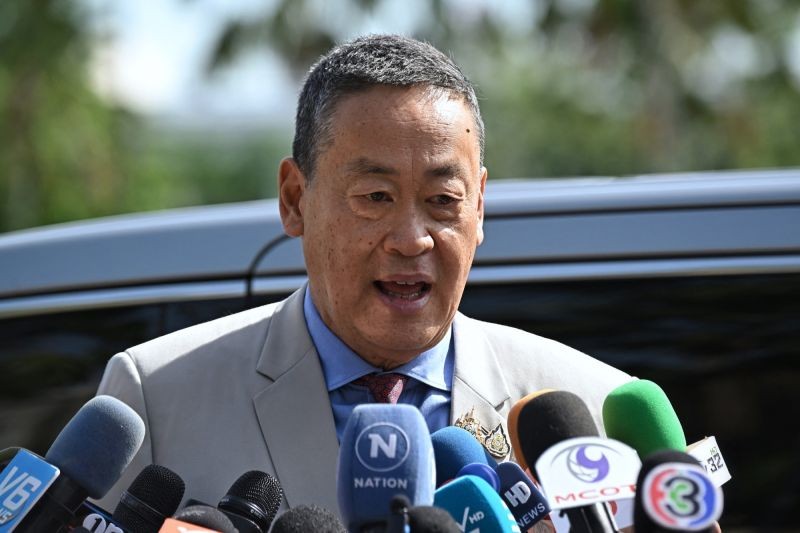Thailand’s Constitutional Court on Wednesday dismissed Prime Minister Srettha Thavisin by 5-4 verdict for grossly violating ethics by appointing a minister who had served jail time, a charge he denies. His exit after less than a year in power raises the prospects of political upheaval, a shakeup in the governing alliance and lowering of confidence in an economy already struggling with anaemic growth, weak exports, low consumer confidence and high household debt. The index slipped 1.29% after the court decision, before recovering to close 0.4% down.
The verdict comes a week after the same court dissolved the country’s popular progressive Move Forward Party, which had won the most seats in last year’s election, and banned its leaders from politics for 10 years. Move Forward’s surviving lawmakers have regrouped under a new party.
A new government must now be formed, and the ruling Pheu Thai-led coalition will nominate a new candidate for prime minister, which will be voted on by the 500-seat parliament, says CNN, adding, “the verdict means more upheaval for Thailand’s already turbulent political landscape, in which those pushing for change have frequently run afoul of the establishment – a small but powerful clique of military, royalist and business elites.”
With Srettha now out of office, political negotiations will restart, with coalition partners jostling for the PM and other cabinet positions. According to political experts quoted in the media, it is likely that Pheu Thai would still have the clout to lead the next administration, after a period of horse-trading and uncertainty over who will be in charge.
Pheu Thai leader Paetongtarn Shinawatra, Thaksin’s daughter, is a likely candidate, with Interior Minister Anutin Charnvirakul, and political veteran Prawit Wongsuwan, leader of the pro-military Palang Pracharat party, who was involved in the past two coups against the Shinawatra family, being the other probable candidates, as per media reports.
MitKat Advisory will continue to monitor the events in Thailand and the wider region currently grappling with geo-political and social instability. Three Brotherhood Alliance has been making significant gains against The Tatmadaw in Myanmar. In Bangladesh, PM Shaikh Hasina had to leave the country amid student-led popular protests supported by the Opposition.
Disclaimer: The article has reference to open sources including CNN and Reuters.
Would invite expert views on:
- How do you see this ruling affecting Thailand’s internal politics, regional and global relations, and the economy, particularly tourism and external investments?
- The whole region from Thailand to Bangladesh, including Myanmar is currently rocked by political instability. Do you see any specific regional trends or are the social, political and judicial developments unique to each country?






